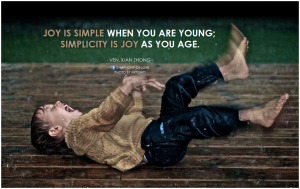 Page One/Syllabus
Page One/Syllabus
Tecnológico de Monterrey, Campus Guadalajara
Computer Science Department
TC20016 Object-Oriented Programming
January to May, 2016
Course Description
Course intent within the general study plan context
The purpose of this intermediate computing course is for students to solve problems using the object-oriented paradigm. It requires prior knowledge of algorithms and control structures in a high-level language. The learning outcome of this course is for students to design and implement solving-problem programs using the object-oriented paradigm.
Course objective
Upon completion of this course, students will be able to apply the object-oriented paradigm to solve problems.
Textbooks
No specific defined text, bibliography will be provided. Java videos on Lynda.com should be very relevant.s
Evaluation
I am applying an #AbolishGrading policy in this course. Partial and final grades will be negotiated between each student and the instructor. I will provide more details about how this works but rest assured that you will receive the grade you deserve based on you presenting evidence of knowledge/master/learning of the content in the course.
Note for ISC Students
Your grade will be multiplied by 0.95 and then include 5% of the grade from the “Taller Vertical”
Project
This course is defined to include a project, each of you will define your project in a team of two and we will invite the best projects to present at the Engineering Expo on Tuesday May 3.
Learning Evidence
You will create and share a publicly visible blog for this course. You can use an existing blog (with some work to isolate your work in this course from other posts) but it is probably best to create your own blog. More details in assignments.
PART OF LEARNING TO REVIEW MATERIAL IN AN ACADEMIC STYLE INVOLVES PAUSING, HIGHLIGHTING, NOTE TAKING, SUMMARIZING AND QUESTIONING THE CONTENT.
This is the purpose of your blog. Be creative and create evidence in any way you like. Write code, write prose, write poems, songs, record videos. The choice is yours.
This Course is Different than Others
Note that we are using an educational paradigm that is called the “Flipped Classroom” in this course. This will be a change for you in that you are responsible for reviewing any videos, reading of textbooks or other materials requested outside of classroom time. The time inside the classroom is principally dedicated to actively programming or asking questions about programming problems or theory from materials that you or your classmates did not understand.
This means that you need to arrive to the classroom ready to program. I am a big proponent of “pair-progamming” as well as “pair learning” which means I often will ask you to work in pairs at the computers. You should however ensure you have your personal computers setup with the tools we need for the course.
Important Dates
The dates of partial exams and final exams for all courses follow the general academic calendar which can be found at http://www.gda.itesm.mx/escolar
Assignment Details
All assignments are optional. Do the ones that you feel are useful to you in order to show your mastery in the course. If you are in doubt, just do all of them but the choice is yours. Part of your justifying your grade will be showing what work you have done to show your knowledge of the course content.
Course Policies
Have fun, learn, share with others and help others learn.
“Sign” here
Post a Tweet from your own Twitter account linking to this document and stating “I agree to our #TC201 Page One”.
![]() TC2016 Page One by Ken Bauer is licensed under a Creative Commons Attribution-ShareAlike 4.0 International License.
TC2016 Page One by Ken Bauer is licensed under a Creative Commons Attribution-ShareAlike 4.0 International License.
